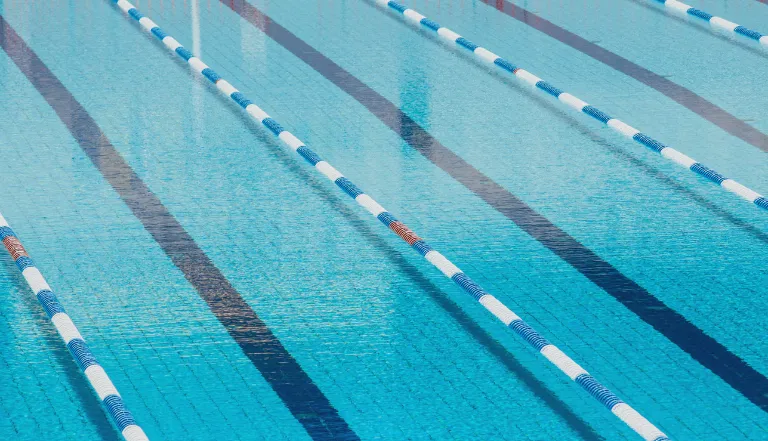Paris, the host of the 2024 Olympics and a hub for the world's luxury goods markets, will be seeing an influx of tourists over the next month. This surge presents prime opportunities for the city's bustling counterfeit market. Visitors will encounter a range of fake merchandise, from inexpensive Olympic souvenirs to designer knockoffs, crafted by those eager to exploit the increased number of tourists. Earlier this afternoon, Marks & Clerk Partner, John Ferdinand, spoke to BBC Radio about the concerns surrounding counterfeit goods during big events like the Olympics, highlighting the importance of education and action needed to protect both brand reputation and the public.
You can listen to John's interview with Mhairi Stuart here from 40:46; or read the transcript below.
Mhairi Stuart (MS): With millions of tourists in Paris for the 2024 Olympics, fraudsters can take advantage of unsuspecting shoppers out in the streets, fake merchandise and Olympics memorabilia will be on sale throughout the city of love produced by those looking to capitalize on the influx of visitors.
We're joined now by John Ferdinand, Partner, Trade Mark Attorney, and anti-counterfeiting lead at international intellectual property firm Marks & Clerk. Thank you for joining us, John.
Do these things always happen surrounding big events like the Olympics, that there will be people who have already produced the counterfeit goods?
John Ferdinand (JF): Yeah, absolutely Mhairi. I think it's the case that increasingly, third parties are looking to make a profit from these kinds of events, and are planned for these kinds of events in advance. To some degree, it's a fact of life. But what I would say is, at the same time, the authorities also do put a lot of planning in to try and reduce the number of counterfeits available on the market and try to keep them out of the market.
MS: I mean, they're pretty careful usually aren't they, to protect the branding surrounding the event, particularly sponsorship?
JF: Absolutely. I mean luxury brands, well, all kinds of high street and well-known brands, support the Olympics; they pay millions of pounds for the exclusivity of being able to associate themselves with the Olympics. Of course for that reason, both in terms of damage to their reputation, but also to protect that investment, they're keen to make sure that action is taken to address counterfeit goods.
MS: Presumably though the official merchandise has kind of extra security layers anyway, that people can tell?
JF: Yeah, that's true. So certainly the Olympics has specific logos that it will use, and in some cases you might have holograms and other kinds of anti-counterfeiting measures that will be present on the tags or labels of the goods, so that people are able to tell that what they're buying is a genuine product. So yes, absolutely. There are measures in place so that people can tell the difference between a fake and a genuine product. To some degree, it depends how much attention people pay, of course, and it doesn't stop the fake products from being made available, where they can get around the authorities.
MS: Official merchandise, though, is notoriously quite pricey, isn't it? What's wrong with buying something that looks like it, that’s not the genuine article?
JF: Well, I completely appreciate that the commonly held perception is that the counterfeit goods market is a victimless crime, because in the end, people can know often that they're not buying genuine products. But I suppose what I would say to that, is that there have been a lot of known links between the counterfeit goods market and organised crime. And so in some ways people could unwittingly be supporting organised criminals, terrorists, and those kind of organisations, which have real sort of big, damaging impacts on society.
MS: Yeah, I mean, there has been some interesting research in young people, half of young people would quite happily buy counterfeit goods. But how do you tackle it, then? Do you think it is just a matter of education to alert people as to where their money's going?
JF: I think absolutely, education is the key. It's the kind of topic where telling people what to do from a kind of authoritarian perspective, probably doesn't work or isn't the only solution. So I definitely think raising awareness of the real world cost of these issues is probably the most important way to go and really to reinforce the value of being associated with the authentic spirit of the Olympics, and being able to say that they really are purchasing genuine goods that are associated with the Olympics.
MS: Is there more do you think that could be done in terms of the customs process, because we all know where an awful lot of these fake goods actually come from?
JF: I mean, I would say that there's a lot of intelligence shared among the customs authorities, I think it's just an ongoing process of making sure that customs are given all the information they have available to them. In some cases, there are budgeting constraints, as you see in all aspects of government organisations. There's other priorities that governments have to deal with in terms of spending to try and tackle this, but you know I do think that there is there is a lot of work going on in order to tackle this kind of activity already, both in terms of the the law enforcement community, brand owners as well, in trying to support that and provide as much intelligence as possible to protect the public.
MS: John Ferdinand - Thank you very much indeed for speaking to us.
